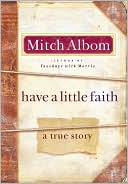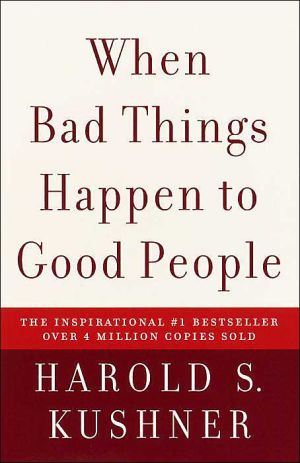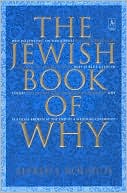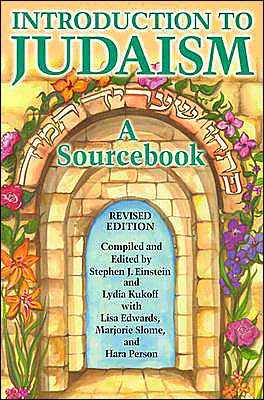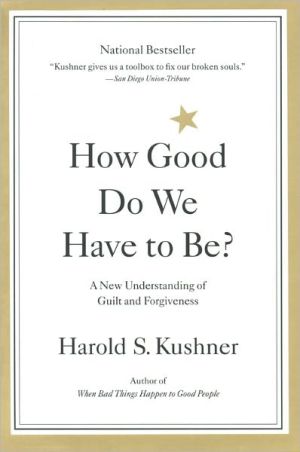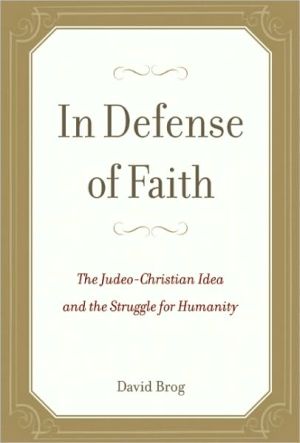Kol Dodi Dofek: My Beloved Knocks
This essay, originating in a speech delivered in 1956 at an Israel Independence Day celebration, discusses the religious significance of the creation of the State of Israel and the obligation that its existence imposes upon Jews.
Search in google:
This essay, originating in a speech delivered in 1956 at an Israel Independence Day celebration, discusses the religious significance of the creation of the State of Israel and the obligation that its existence imposes upon Jews.
Kol Dodi Dofek Listen - My Beloved Knocks\ \ By Joseph B. Soloveitchik \ Yeshiva University\ \ ISBN: 0-88125-897-0 \ \ \ Chapter One\ The Righteous Suffer \ One of the deepest of mysteries, troubling Judaism from the dawn of its existence, is the problem of suffering. At a propitious moment of Divine compassion, Moses, the master of all prophets, pleaded before the Lord of All to be enlightened as to the workings of this impenetrable phenomenon. Moses knocked on the gates of heaven and cried out, "Show me now Your ways, that I shall comprehend You, so that I might find grace in Your eyes ... instruct me as to Your glory" (Exodus 33:13, 18).\ Why and wherefore are hardships visited on man? Why and wherefore do the righteous suffer and evildoers prosper? From that wondrous morning when Moses, the faithful shepherd, communed with the Creator of the Universe and pleaded for the comprehensive solution to this question of questions, throughout the generations, the prophets and sages of Israel have grappled with this conundrum. Habakkuk demanded satisfaction for this affront to justice; Jeremiah, King David in his Psalms, and Solomon in Ecclesiastes all pondered this problem. The Book of Job is totally dedicated to this ancient riddle that still hovers over our world and demands its own resolution: Why does the Holy One, blessed be He, permit evil to have dominion over His creations?\ Judaism, in quest for a safe harbor in aworld split and dismembered by existential suffering, and in its search for a solution to the mystery of the suffering that (to all outward appearances) pervades without limits, came to a new formulation and definition of this problem that has both greater breadth and greater depth. Posing the question of suffering, claims Judaism, is possible in two separate dimensions: the dimension of fate and the dimension of destiny. Judaism has always distinguished between an "Existence of Fate" and an "Existence of Destiny," between the "I" which is the progeny of fate and the "I" which is the child of destiny. In this distinction lies hidden the Jewish doctrine of suffering.\ What is an Existence of Fate? It is an existence of duress, in the nature of "against your will do you live" (M. Avot 4:29). It is a factual existence, simply one line in a [long] chain of mechanical causality, devoid of significance, direction, and purpose, and subordinate to the forces of the environment into whose midst the individual is pushed, unconsulted by Providence. The "I" of fate emerges as an object. As an object, man appears as acted upon and not as actor. He is acted upon through his passive collision with the objective outside, as one object confronting another. The "I" of fate is hurled into a sealed dynamic that is always turned outward. Man's existence is hollow, lacking inner content, substance, and independence. The "I" of fate denies itself completely, because the sense of selfhood and objectification cannot dwell in tandem.\ It is against such a background that the experience of evil surfaces in all its terror. There are two stages in fate/existence. From the start, the man/object, imprisoned, against his will, [bound up] in the chains of existence, stands perplexed and confused in the face of the great mystery called suffering. Fate mocks him: his existence, crazed and torn, opposes itself and denies its worth and importance. The fear of extinction assails him and crushes his body and soul. The sufferer wanders lost in the vacuousness of the world, with God's fear spread over him and his anger tensed against it; he is entirely shaken and agitated. His agonies are devoid of any clear meaning and they appear as satanic forces, as out-growths of the primal chaos that pollutes the creation whose destiny it was to be a reflection of the Creator. At this stage of perplexity and speechlessness, of numbness of the heart and confusion of the mind, man does not ask at all about the reason for evil and its essence. He simply suffers in silence and is choked by his anguish, which silences his complaint and suppresses questioning and inquiry.\ After the psychic quaking of the sufferer, which comes as a first reaction to suffering, comes the intellectual curiosity of the sufferer, which seeks to understand existence and to strengthen the sufferer's safety and security. At this stage man begins to examine suffering and to ask weighty questions. He searches for the rational foundations of suffering and evil, and he endeavors to find the tranquility and harmony that lie between the positive and negative and thus to remove the edge from the tension between the thesis, "good," and the antithesis, "evil," of existence. From the question and the inquiry, the solution and the answer, he arrives at a meta-physical formulation of evil through which he comes to terms with evil and attempts to gloss it over. The sufferer employs the powers of rational abstraction (with which the Creator endowed him) to the point of self-deception: denial of the existence of evil in the world.\ Judaism, with its realistic approach to man and his status within existence, understood that evil does not lend itself to being obscured and glossed over, and that every attempt to diminish the import of the contrast and cleavage in existence will not bring man to inner peace or to comprehension of the existential secret. Evil is a fact that cannot be denied. There is evil in the world. There are suffering and agony, and death pangs. He who would deceive himself by ignoring the split in existence and by romanticizing life is but a fool and a fabricator of illusions. It is impossible to conquer monstrous evil with philosophical-speculative thought. Thus, Judaism determined that man, submerged in the depths of a frozen fate, will in vain seek the solution to the problem of evil in the context of speculative thought, for he will never find it. Certainly, the testimony of the Torah regarding creation - that "it is very good" (Genesis 1:12) - is true. However, this is only stated from the unbounded perspective of the Creator. In man's finite, limited view, the absolute good in creation is not apparent. The contrast is striking and undeniable. There is evil that is not susceptible to explanation and comprehension. Only by comprehending the world in its totality can man gain insight into the essence of suffering. However, as long as man's perception is limited and fragmented, so that he sees only isolated portions of the cosmic drama and the mighty saga of history, he cannot delve into the recesses of evil and the mystery of suffering. To what might this situation be compared? To a person who views a beautiful tapestry, the work of a fine artisan, which contains, woven into it on its front, a representation dazzling to the eye. To our great sorrow, we see this image [i.e., the world] from the obverse side. Can such a sight become a sublime esthetic experience? Thus, we are incapable of comprehending the panorama of reality without which one cannot uncover God's master plan - the essence of the works of the Holy One.\ In short, the "I" of fate asks a speculative/metaphysical question about evil, and this question is not given to solution and has no answer.\ In the second dimension of man's existence, destiny, the question of suffering takes on new form. What is an Existence of Destiny? It is an active existence, when man confronts the environment into which he has been cast with an understanding of his uniqueness and value, freedom and capacity; without compromising his integrity and independence in his struggle with the outside world. The slogan of the "I" of destiny is: "Against your will you are born, and against your will you die" (M. Avot 4:29), but by your free will do you live. Man is born as an object, dies as an object, but it is within his capability to live as a "subject" - as a creator and innovator who impresses his individual imprimatur on his life and breaks out of a life of instinctive, automatic behavior into one of creative activity. According to Judaism, man's mission in this world is to turn fate into destiny - an existence that is passive and influenced into an existence that is active and influential; an existence of compulsion, perplexity, and speechlessness into an existence full of will, vision, and initiative. The blessing of the Holy One to his creation fully defines man's role: "Be fruitful and multiply and replenish the earth and subdue it" (Genesis 1:28). Conquer the environment and subjugate it. If you do not rule over it, it will enslave you. Destiny bestows on man a new status in God's world. It bestows upon man a royal crown, and thus he becomes God's partner in the work of creation.\ As stated above, in man's "Existence of Destiny" arises a new relation to the problem of evil. As long as man vacillates in his fateful existence, his relationship to evil is expressed solely in a philosophical/speculative approach. As a passive creature, it was not within his power to wrestle with evil in order to contain or to exploit it for an exalted purpose. The child of fate is devoid of the ability to determine anything in the realm of his existence. He is nurtured from the outside, and his life bears its imprint. Therefore he relates to evil from an impractical perspective and philosophizes about it from a speculative point of view. He wishes to deny the reality of evil and to create a harmonistic outlook on life. The result of such an experience is bitter disappointment. Evil mocks the prisoner of fate and his fantasy of a reality that is all good and pleasant.\ However, in the realm of destiny man recognizes reality as it is, and does not desire to use harmonizing formulas in order to hide and disregard evil. The "Child of Destiny" is very realistic and does not flinch in anticipation of a face-to-face confrontation with evil. His approach is halakhic and moral, and thus devoid of any metaphysical/speculative nuance. When the "Child of Destiny" suffers, he says in his heart, "There is evil, I do not deny it, and I will not conceal it with fruitless casuistry. I am, however, interested in it from a halakhic point of view; and as a person who wants to know what action to take. I ask a single question: What should the sufferer do to live with his suffering?" In this dimension, the emphasis is removed from causal and teleological considerations (which differ only as to direction) and is directed to the realm of action. The problem is now formulated in the language of a simple halakhah and revolves around a quotidian (i.e. daily) task. The question of questions is: What does suffering obligate man to do? This problem was important to Judaism, which placed it at the center of its Weltanschauung. Halakhah is just as interested in this question, as in issues of issur and beter and biyyuv and p'tur. We do not wonder about the ineffable ways of the Holy One, but instead ponder the paths man must take when evil leaps up at him. We ask not about the reason for evil and its purpose, but rather about its rectification and uplifting. How should a man react in a time of distress? What should a person do so as not to rot in his affliction?\ The halakhic answer to this question is very simple. Suffering comes to elevate man, to purify his spirit and sanctify him, to cleanse his mind and purify it from the chaff of superficiality and the dross of crudeness; to sensitize his soul and expand his horizons. In general, the purpose of suffering is to repair the imperfection in man's persona. The halakhah teaches us that an afflicted person commits a criminal act if he allows his pain to go for naught and to remain without meaning or purpose. Suffering appears in the world in order to contribute something to man, in order to atone for him, in order to redeem him from moral impurity, from crudeness and lowliness of spirit. The sufferer must arise therefrom, purified, refined, and cleansed. "An hour of distress it is for Jacob, and from it he should be saved" (Jeremiah 30:7). From the midst of suffering itself he will achieve lasting redemption and merit a self-actualization and exaltation that are unequaled in a world devoid of suffering. From negation sprouts affirmation; from antithesis, thesis emerges; and from a denial of existence, a new existence is revealed. The Torah gave witness to man's mighty spiritual reaction to suffering inflicted upon him when it said, "In your distress when all these horrors shall come upon you.... then you shall return to the Lord your God" (Deuteronomy 4:30). Suffering requires man to repent and return to God. Distress is designated to arouse us to repentance, and what is repentance if not the renewal and supreme redemption of man?\ How pitiful if man's sufferings do not bring him to a spiritual crisis, and his soul remains frozen and bereft of forgiveness. How pitiful is the sufferer if his soul is not warmed by the flame of suffering, and if his wounds do not spark "the Candle of God" (Proverbs 20:27) within him. When pain wanders in the wide world as a blind force without purpose, a stinging indictment of the man who squanders his suffering issues forth.\ Judaism made this notion more profound when it combined the idea of the repair (tikkun) of evil and its elevation with the perfection and elevation of goodness. Judaism states that the kindnesses of God are not given to man as an unconditional gift, without obligation; they require something in return; their very essence imposes a moral, halakhic demand upon the man who enjoys them. Indeed, while loving-kindness emanates from the open, overflowing, generous hand of the Holy One, it is not an unlimited or unconditional gift. Such a gift is not absolute. The bestowing of good is always conditional and temporary. When God bestows wealth, property, influence, and honor, the recipient must know how to employ them; how to turn these precious gifts into fruitful, creative powers, how to include others in his happiness and greatness, and how to render loving-kindness with the divine kindnesses that emanate and issue forth to him from a never-ending font. If an abundance of good does not bring man to absolute subordination to the Holy One, then he is guilty of a fundamental sin resulting in the severe distress that in turn reminds him of his obligation to the Creator of the universe for the gift of His kindnesses. Our great sages have taught: "Man is obligated to give thanks for evil as he does for goodness" (M. Berakhot 9:5). Just as good obliges man to perform deeds of a higher order and demands creative and innovative actions from the individual or the populace, so does suffering require the repair of the soul and the cleansing of life - if at the time of God's favor and beneficence one was not aroused to action. For it happens that man is summoned to repair, through his afflictions, the damage he caused in God's creation at the hour when the Holy One extended His bounty. The feeling of subordination to the Almighty and the understanding of one's obligation to purify and sanctify one's self by dint of one's suffering must brighten man's soul when he finds himself in distress and perplexed by his existence. He must overcome the obtuseness of his heart that caused him to sin when he stood in the presence of God's bounty. In short, man must solve, not the question of the causal or teleological reason for suffering with all its speculative complexity, but rather the question of its curative role, in all its halakhic simplicity, by turning fate to destiny and elevating himself from object to subject, from thing to man.\ (Continues...)\ \ \ \ \ Excerpted from Kol Dodi Dofek Listen - My Beloved Knocks by Joseph B. Soloveitchik Excerpted by permission.\ All rights reserved. No part of this excerpt may be reproduced or reprinted without permission in writing from the publisher.\ Excerpts are provided by Dial-A-Book Inc. solely for the personal use of visitors to this web site. \ \
1The righteous suffer12Job133Missing the appointed hour214Six knocks315The obligation of Torah Judaism to the land of Israel436The covenants of Sinai and Egypt517The covenant of destiny658Encampment and congregation699Conversion by circumcision and immersion7310Mournful thoughts of confession7711The vision of the religious Zionist movement : loneliness and separateness81

